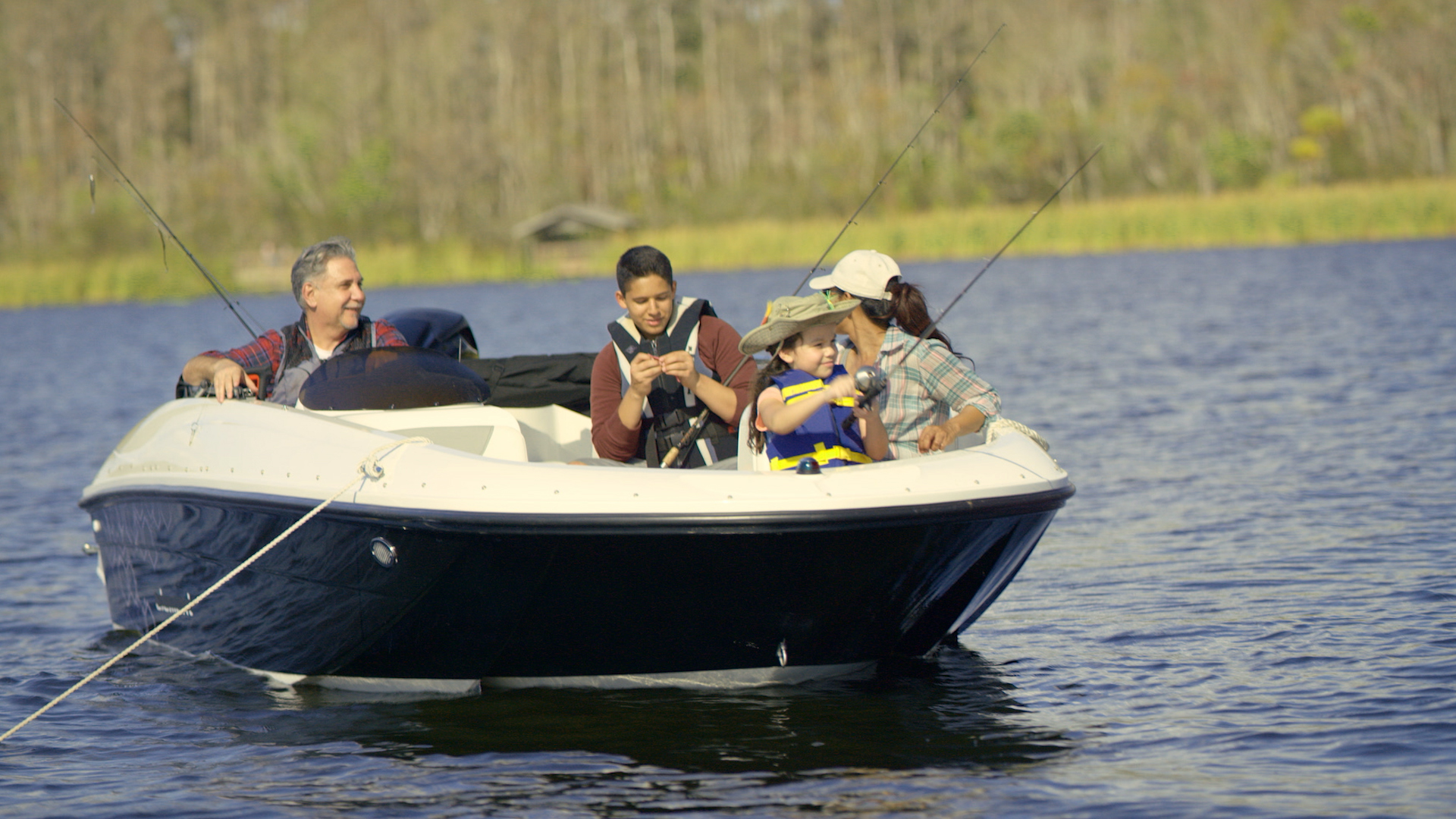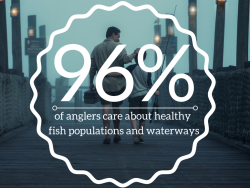Press Releases


ALEXANDRIA, VA (February 22, 2016) – A new survey released by the Recreational Boating & Fishing Foundation (RBFF) and the Council to Advance Hunting and the Shooting Sports (CAHSS), reveals detailed information on anglers’, boaters’, hunters’ and recreational shooters’ current awareness of the connection between conservation and licenses. This first-time study, which was conducted by Colle + McVoy and Carbonview Research, and fielded between September 29 and October 28, 2015, surveyed a total of 1540 respondents (788 anglers and boaters; 752 hunters and shooting sport participants). The study benchmarked participants’ awareness of conservation, knowledge of how licenses and excise taxes fund conservation, and messages that targeted audience groups are most likely to respond to.
Overall, the study revealed approximately 75 percent of respondents are aware of the connection between licensing and conservation, and over 90 percent like the idea that their license fees fund conservation efforts. However, conservation is not the primary reason they participate. In addition, eight in 10 respondents reported the main reason for purchasing a license is not conservation but rather widespread awareness that it is required and the “right thing to do.”
“Supporting conservation by increasing participation is fundamental to our mission,” said RBFF President and CEO Frank Peterson. “With this new study, we have a window on how much anglers and boaters actually know about the role of licenses in funding conservation efforts, and how we can tailor messages to increase their understanding and engagement.”
“We were surprised to find that most hunters and shooters (over 80%) were aware that license funds go towards conservation through the hands of state fish and wildlife agencies” noted CAHSS President and CEO, John Frampton. “From open ended responses, we found that most respondents identified conservation with some form of protection as opposed to ‘hands on management’ of habitats and wildlife populations. These results tell us we need to continue our educational and messaging efforts in order to better explain the role of wildlife management to our hunters and recreational shooters. As we continue our efforts on recruitment, retention and reactivation of hunters and recreational shooters, we need to maintain a focus on the importance license and excise tax dollars play on the management of habitats, wildlife populations and recreational shooting facilities.”
Respondents for the study were categorized according to RBFF’s target audiences, Family Outdoors (who participate with family members) and Outdoor Enthusiasts (who participate alone or with others to build expertise and enjoy the outdoors). Results were also analyzed by Beginner/Intermediate and Avid participants, Boaters and non-Boaters, Male and Female, and Hispanic and non-Hispanic.
KEY FISHING & BOATING FINDINGS:
- Participants boat and fish because they appreciate the outdoors and time spent with family or in the solitude of nature.
- Outdoor Enthusiasts, Avid Anglers and Boaters are more aware of the connection between license fees and conservation than their counterparts (Family Outdoors, Beginner/Intermediate Anglers and non-Boaters).
- Outdoor Enthusiasts, Avid Anglers and Boaters are all significantly more likely to purchase a license both because they are “passionate” about their sport and because fees go towards conservation.
- Almost all anglers and boaters (96%) care about healthy fish populations and our waterways.
- The two highest conservation messages detail out that 100% of fishing licensing fees are invested back into ensuring healthy fish populations.
- Anglers with less experience were, on the whole, less aware of the ties between license purchases and conservation.
- Among the study’s anglers, almost two-thirds own their own boat, and most use their boat to fish.
KEY HUNTING & SHOOTING SPORTS FINDINGS:
- Participants enjoy hunting and the shooting sports because it gives them time to spend outdoors and to build relationships with family and friends.
- The majority of Shooters and Hunters participate in outdoor activities at least once a month.
- The two highest conservation messages detail out that 100% of hunting licensing fees are invested back into ensuring healthy wildlife populations.
- Nearly all care about healthy wildlife populations and appreciate that their fees goes towards conservation efforts. Shooters are significantly more likely than Hunters to say they are passionate about conservation.
- Only 30% of hunters and 41% of shooting sports participants are aware that manufacturers pay excise taxes on the sale of firearms, ammunition, and archery equipment that go towards conservation efforts.
- Nearly all care about healthy wildlife populations and appreciate that their fees goes towards conservation efforts. Shooters are significantly more likely than Hunters to say they are passionate about conservation.
- Shooters actively participate more often than Hunters, who typically hunt between 1-4 times per year.
- Typical demographics of hunting and shooting sports enthusiasts:
- 47% female to 53% male
- Age: 18-34 year olds hold 41% and 35-44 hold 25%
The full report including an executive summary of the RBFF/CAHSS Conservation Study, and results by Census regions and divisions, is available online.
About the Recreational Boating & Fishing Foundation (RBFF)
RBFF is a nonprofit organization whose mission is to increase participation in recreational angling and boating, thereby protecting and restoring the nation’s aquatic natural resources. RBFF developed the award-winning Take Me Fishing™ and Vamos A Pescar™ campaigns to create awareness around boating, fishing and conservation, and educate people about the benefits of participation. Take Me Fishing and Vamos A Pescar help boaters and anglers of all ages and experience levels learn, plan and equip for a day on the water. The campaign websites, TakeMeFishing.org, and VamosAPescar.org, feature how-to videos, information on how to get a fishing license and boat registration, and an interactive state-by-state map that allows visitors to find local boating and fishing spots.
About the Council to Advance Hunting & the Shooting Sports (CAHSS)
The Council to Advance Hunting and the Shooting Sports wants to keep our readers engaged and up to date with the latest news in the hunting and shooting sports world!
The Council is a non-profit, 501(c) (3), charitable, educational organization, established in the District of Columbia in 2009 as an outgrowth of the Association of Fish and Wildlife Agencies' Industry/Agency Coalition, which matured after four years of meetings and relationship building amongst key stakeholders of the North American Model of Wildlife Conservation.
The Council’s extensive partnerships have resulted in the development of a National Hunting and Shooting Sports Action Plan. Development and implementation of the project will produce enhanced cooperation among state and federal agencies, non-government organizations, industries, and trade organizations that are vested in the nation’s hunting and shooting sports heritage.
For more information on the Council, please visit www.cahss.org and for more information on our National Hunting and Shooting Sports Action Plan and its R3 efforts, please visit www.nationalr3plan.com.



